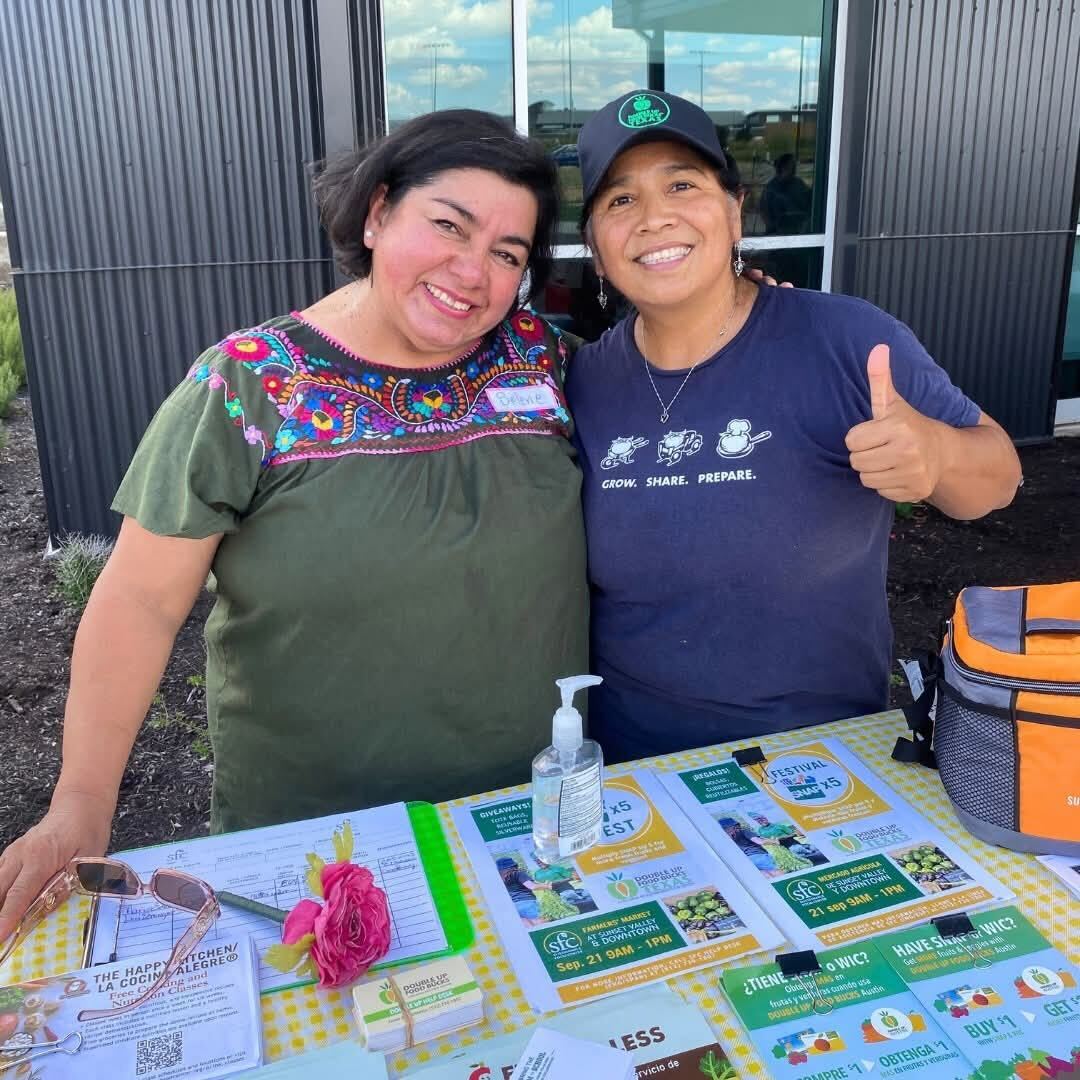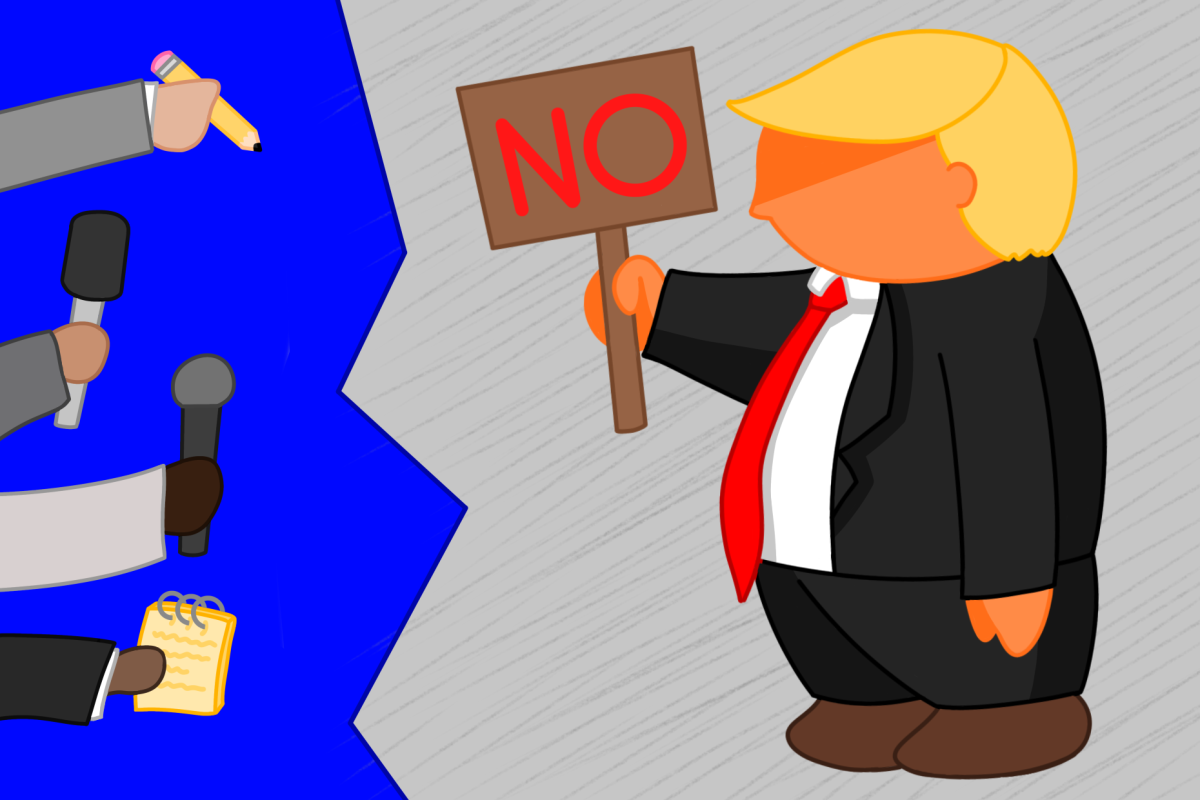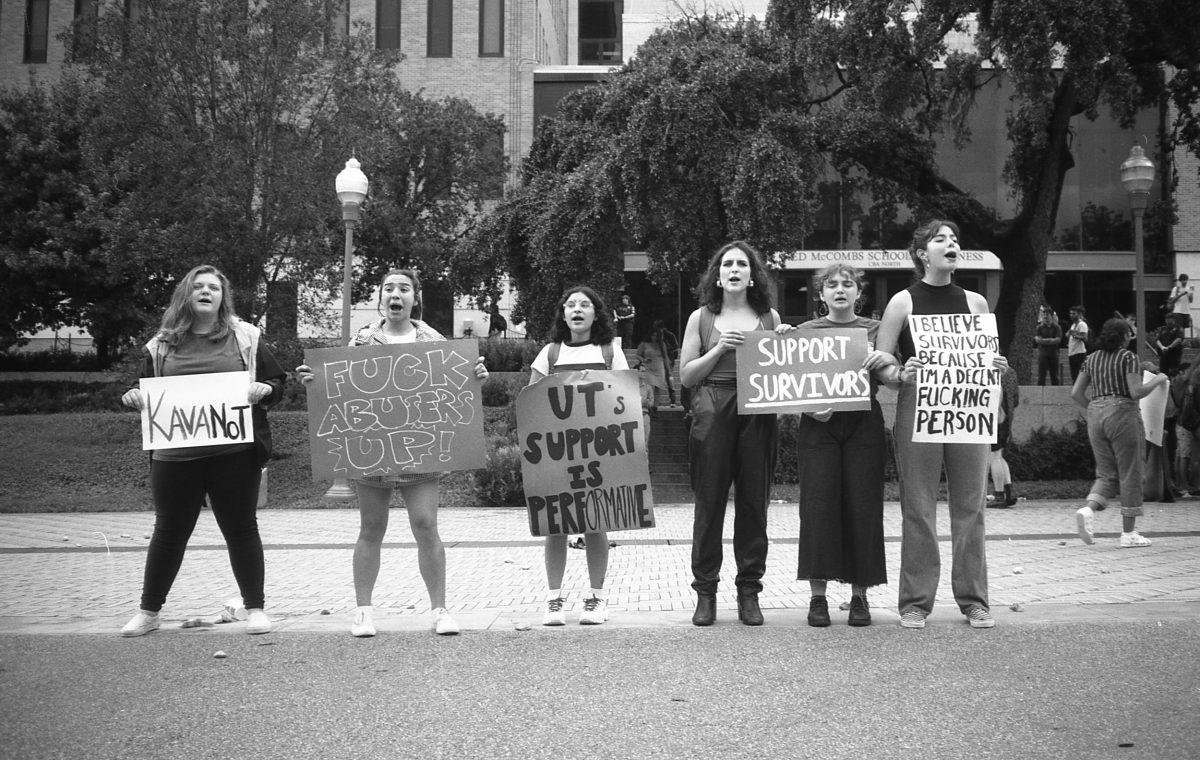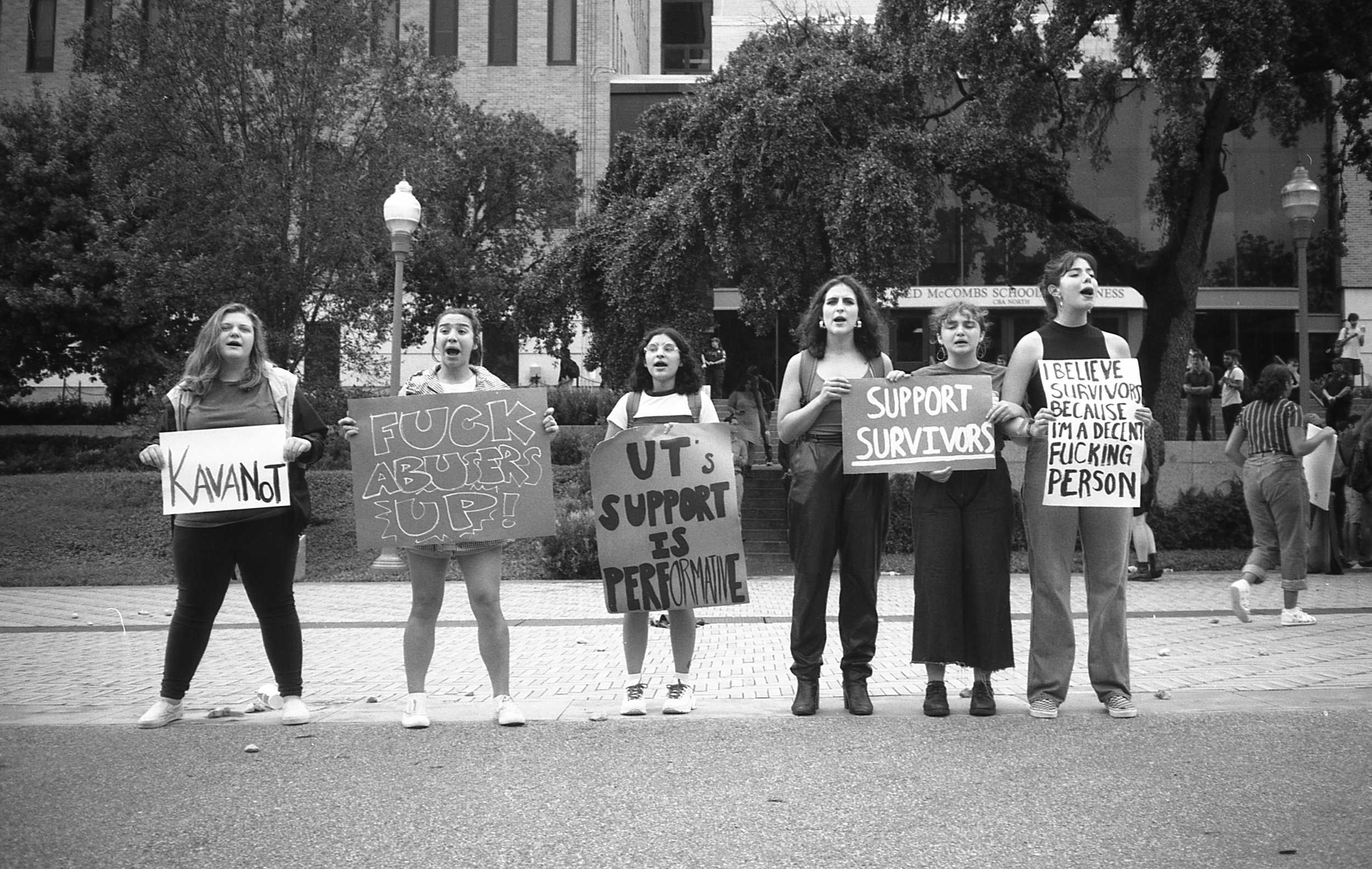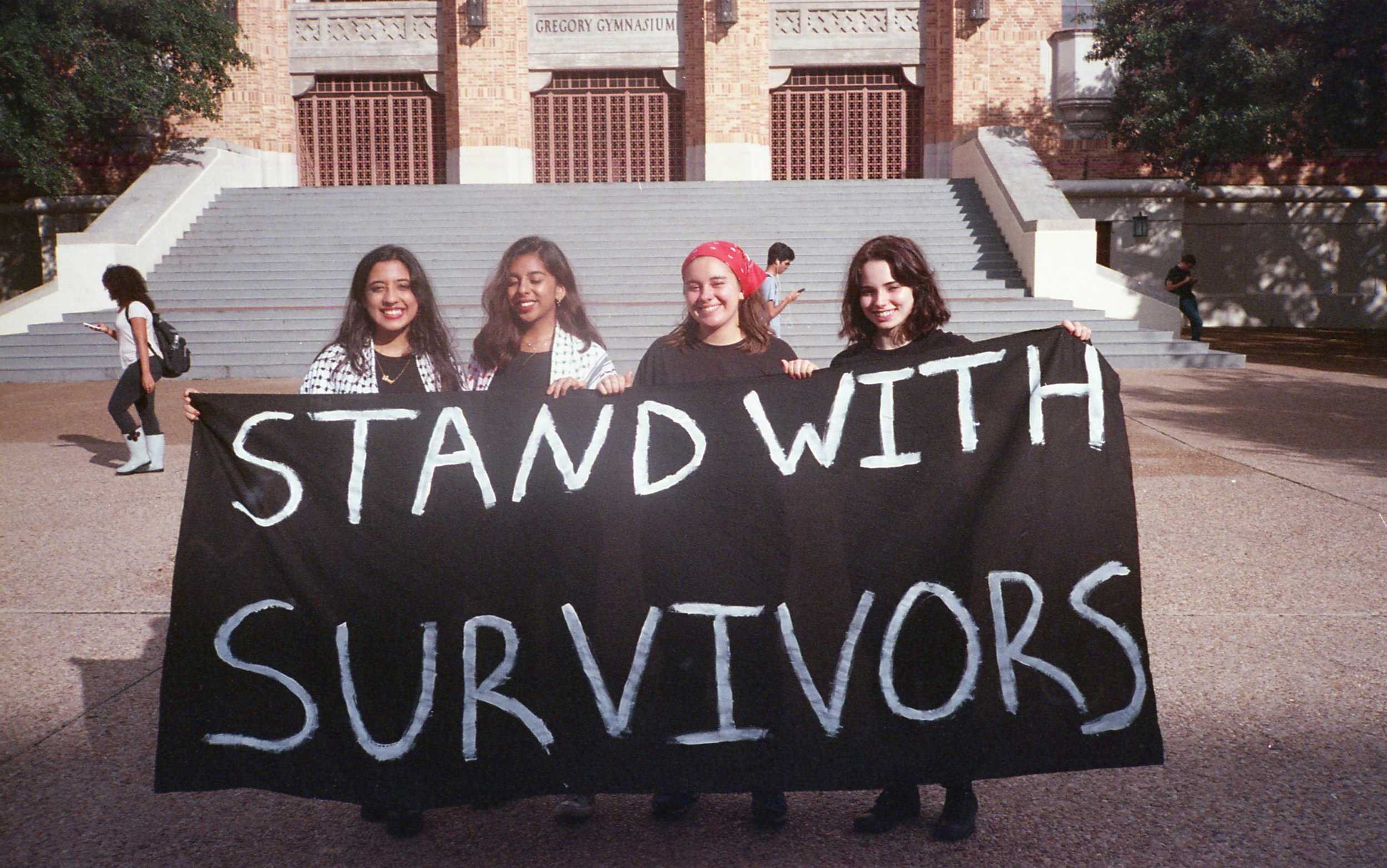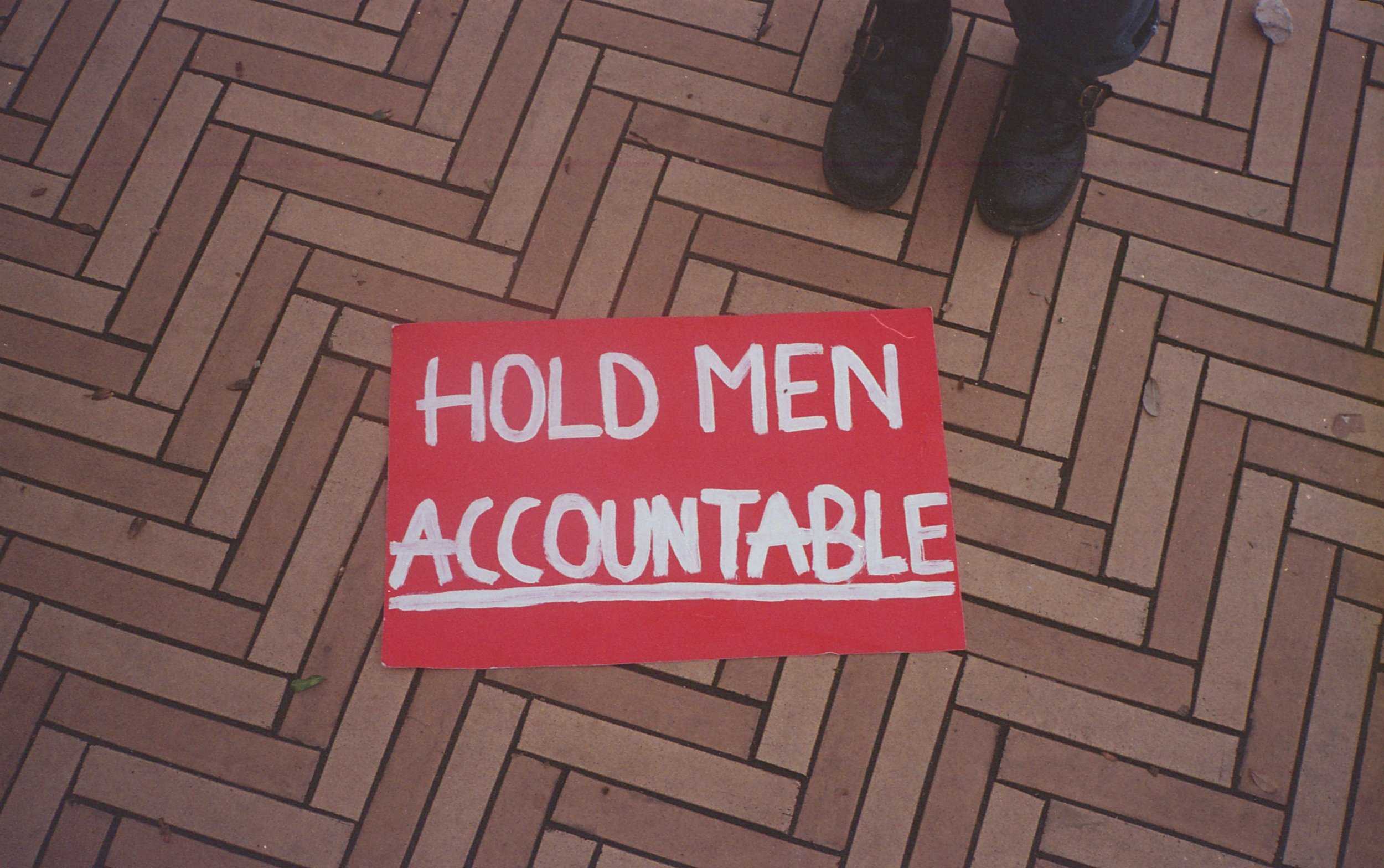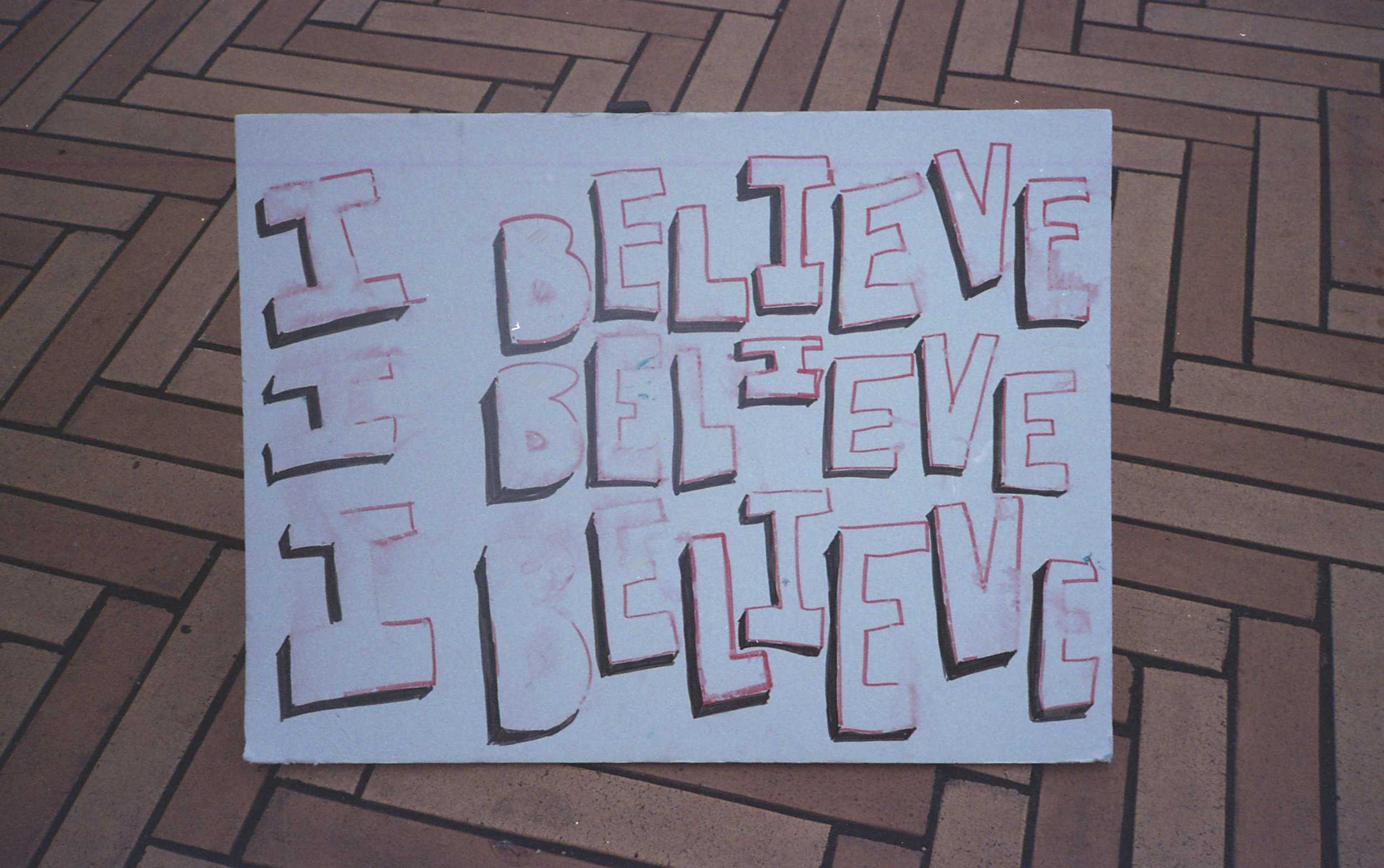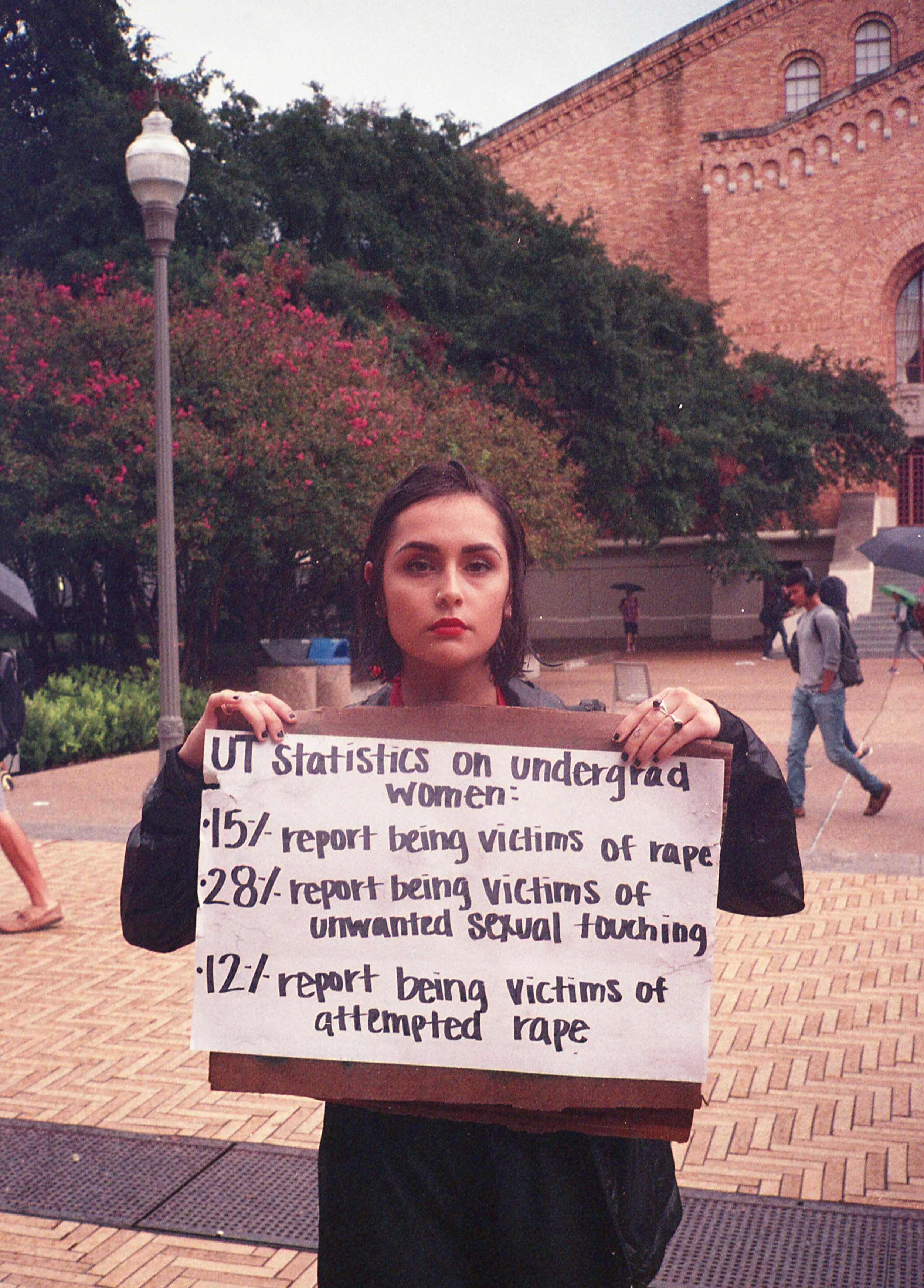Students stand in the middle of Speedway during the protest, chanting and holding signs.
In the wake of recent dialogue about sexual assault in the news and incidents on campus, students came together last week to advocate for survivors on campus and beyond.
Story by Sage Foster
Photos by Emma Hollingsworth
On Tuesday, Oct. 9 students at the University of Texas gathered on Speedway in a demonstration of support for survivors of sexual assault. The rally was organized by four students in response to events that occurred the prior week in which the Young Conservatives of Texas (YCT), a student-led University affiliated organization, held signs in support of Supreme Court Justice Brett Kavanaugh. This occurred in the midst of sexual assault allegations from multiple women, including Dr. Christine Blasey Ford. The signs contained content that was triggering to many students, some of whom stayed home or missed classes because of the demonstration. Students who chose to organize a response to the event spoke to ORANGE, but requested that their last names be omitted. “The next morning, I woke up and was still really angry that I had had to miss two classes because I was so triggered by the display I saw, and I immediately texted Sarah and said, ‘Let’s do something about this,’” senior journalism major Rimsha says. “We have to do something about this. It’s our duty to.”
Rimsha’s friends Sarah and Angel had already been planning a response, so she was added to their chat and plans began to form. “Within 24 hours, we saw about 1.4k people interested in our Facebook event, so that was really amazing,” Rimsha says.
Demonstrators at the protest, many of whom wore red as a symbol of solidarity, formed a peaceful barricade across Speedway where they held signs and chanted. At alternate points throughout the protest, participants formed a circle in which survivors could individually step up, tell their stories and read poems or letters. There was also a tent with self-care resources including snacks, water and crafts that students had access to throughout the demonstration. “First and foremost, we would like some kind of sanctions to be put on YCT and the type of demonstrations that they’re able to do on campus,” women and gender studies junior Sonya says, who also helped organize the protest. “As we stated, their display was really triggering to a lot of people, and that can affect people’s mental health for days on end. And this definitely isn’t the first time they’ve made students feel uncomfortable or unwanted on campus.”
The organizers of the event, Sonya, Rimsha, Angel and Sarah pose for a photo with a Stand with Survivors sign
In October of 2016, YCT held a bake sale in protest of affirmative action, where they sold cupcakes to students at different prices based on their ethnicity. They were also responsible for planning “Catch an Illegal Immigrant” event in November of 2013 that was cancelled due to fears of University retaliation. “Given that this type of hate speech was allowed, and for YCT to just not receive any consequences–it’s just so disappointing,” Rimsha says.
“Something personally that I would like to see is a change in the policy of how groups get disbanded, because I feel like they should’ve been disbanded a long time ago,” pre-med sophomore Angel says. Another change the organizers would like to see is in the resources UT offers for survivors. “They say they have a lot of resources on campus, but considering the ratio of counselors to students, it’s almost impossible to get an appointment.”
Signage made by students.
While the University seems fast to reach out to students experiencing suicidal thoughts, many feel that it is slow in delivering resources to students who are struggling with mental health issues that are less immediately-threatening but still severe. Angel also suggested a student-elected department that is responsible for ending harmful or triggering demonstrations. “We have the Campus Climate Response Team, but they didn’t do anything in this case, even though we had people reporting it from the beginning,” Angel says. “So we either need that department to be stronger, or we need to create a new one that’s like, by students, for students.”
Another issue the organizers brought up in regard to UT’s management of student well-being and advocacy rights was related to police presence. Police officers were present at the protest even though the organizers declined the offer. “They were an oppressive force on our healing rally, and when people were grabbing our protesters, when bikes were coming at us full speed and stopping at the last minute as an intimidation tactic, police did nothing,” Angel says. “Our protesters were grabbed, they were shoved, they were pulled apart. And police didn’t do anything, they just stood there. So why were they there?”
Additionally, Rimsha reported that police did nothing to intervene when fellow students yelled things at the protesters such as, “No one believes you,” or “Kavanaugh was right.” Angel says police presence at the rally also prevented some black students from participating out of fear of being targeted if tensions arose. This was damaging to these students’ ability to share their experiences and receive support, as well as to the organizers’ intent for the rally to be as inclusive and intersectional as possible. While the option of police presence was originally offered to the organizers as a protective force against counter-protesters, Rimsha, Angel and Sonya told ORANGE they felt that they themselves were the ones being policed.
Student poses with the poster she made for the rally.
One important issue that events such as the YCT demonstration have brought to light is the societal perception of post-traumatic stress disorder (PTSD) as a result of sexual assault. In a letter from a student suffering from PTSD that was read at the rally, she wrote that she feels PTSD from sexual assault is often trivialized and not seen as a valid illness, despite the fact that sexual assault is the primary cause of PTSD in women. According to the author of the letter and the organizers, YCT’s demonstration was in violation of school rules. “If UT refuses to take action against YCT, survivors have a case against them and can take legal action,” Angel says. According to Angel, the author of the letter is asking for student survivors to send her testimonies if UT continues to refuse to take action.
The rally was an emotionally charged and difficult experience for countless survivors who came out to share their stories and advocate for themselves and so many others. Sonya expressed feelings of gratitude for the sense of solidarity and community the protest was able to create while navigating such a challenging issue. “A really impactful aspect of rally was what a collective effort it was,” Sonya says. “So many people were reaching out consistently throughout the rally offering their help, checking in about our needs and donating supplies. There were even other organizations coming to the forefront to do that work. It didn’t feel like we were doing anything alone.”Students who wish to submit testimonies regarding sexual assault experiences and/or reactions to the YCT demonstration for the purposes of urging UT into action are encouraged to contact the author of this article. Submissions can remain anonymous.





